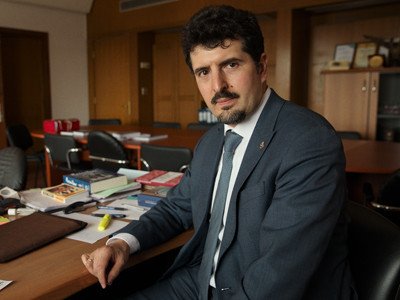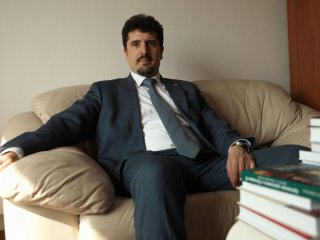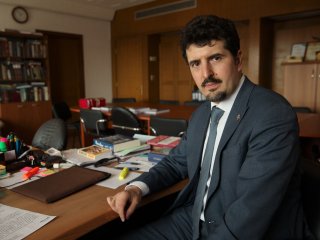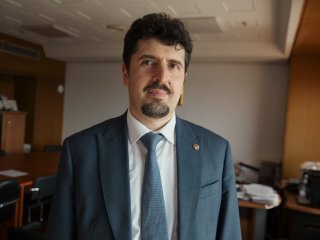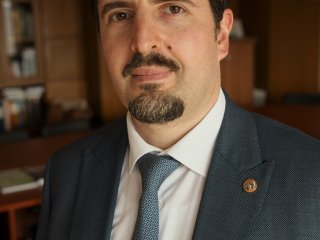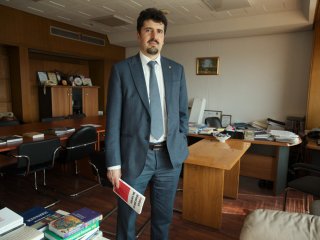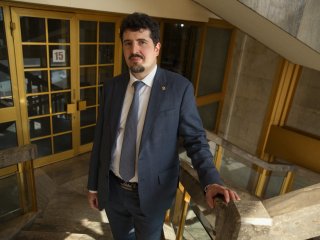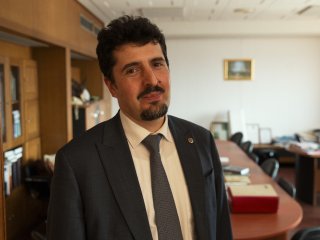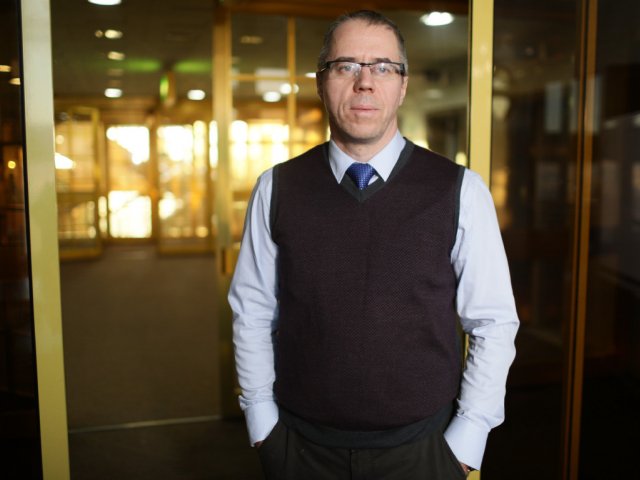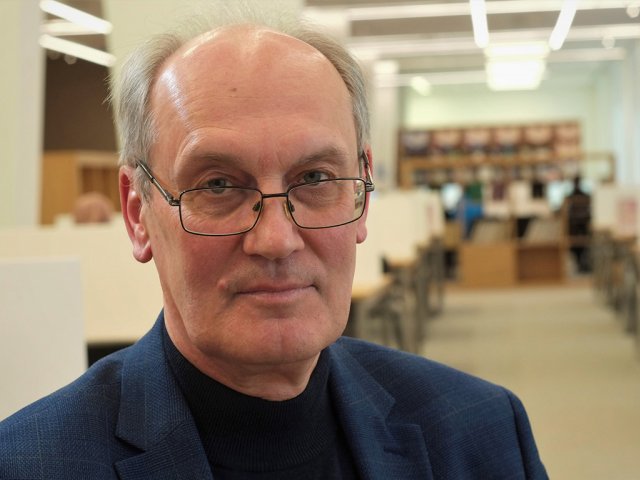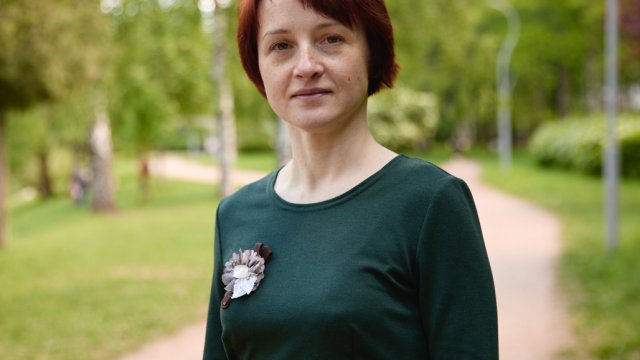M. A. Lipkin, Director of the Institute of World History of the Russian Academy of Sciences, Corresponding Member of the Russian Academy of Sciences, Professor of the Russian Academy of Sciences, speculates how the big history is swayed today, whether we need books, and why science is getting more important in society.
– Mikhail Arkadievich, what does your institute do and draw inspiration from?
– The institute is developing. We got several new subdivisions, for example. We also won a tender. We have a youth laboratory named “Institutional History of the 20th Century” where young researchers work very actively. But, in the meantime, we continue our research across the entire range of human history. We have very strong experts specializing in the Middle Ages, the Early and Modern periods, and we are developing theoretical research related to the methodology of historical studies, including teaching history. We are members of various expert associations. We host congresses and conferences for history school teachers, university instructors and deans, heads of institutes of history and faculties of history. Member of the Academy of Sciences Aleksandr Oganovich Chubaryan who is a chief research officer at the institute takes an active part in all these events.
There are different projects of individual departments, but what brings us all together is institute-wide projects. The project, which came to a close in 2019 and lasted for ten years, ended with the successful release and almost immediate re-release of the fundamental academic work World History in six volumes, which replaced the many-volumed Soviet one published back in the 1960s.
There was nothing of the kind in the history of Russia. Each volume has 50 authors let alone editors, those who worked with maps, with illustrations, reviewers. This is, of course, a large amount of work. I would even say that by doing so we have organized the dialog between generations. Unfortunately, many of the major historians who participated, for example, in the issue of the first volumes, have not lived long enough to see this day. But we recorded the transfer of knowledge from the veterans of the late Soviet and early Russian period to the young people who are now reading these works.
There we tried to take the best examples of writing from Western texts with their chronological approach and in the meantime contributed many completely innovative solutions where we used the experience of some Soviet colleagues. The result was a global history, an attempt to capture a glimpse of what was happening on the planet at a certain point in time. It is very complicated. In some ways, we are trying to implement these things in education. As the Head of the Chair of the World and Russian History at the Moscow State University of Foreign Affairs, I take part in writing such a guide.
We are currently working on two major institute-wide projects. One is a part of the New World History of the 20th century. Here, we are working on a two-volume piece on Science and Society in the Twentieth Century. Essentially, it’s going to be a fundamentally new glance at what happened in science, why we’re talking about knowledge being so important now, what the difference is between the 19th and the 21st centuries, and what so important happened in all areas of science last century.
– But this is not the first experience of its kind, is it?
– Our experience is unique in its own way. Our colleagues in the Cambridge History of Science, which was published last year, followed the regional principle. There we have the Soviet science, the American science, all separate, and so on. And we choose the problem-based principle: the scientific revolutions, how they occurred in different countries, how scientists from different countries communicated with each other despite the Iron Curtain and the Cold War. The biggest challenge is to find authors. The concept has already been approved by the academic council, it’s quite original and interesting, and we’re working on it.
– Mikhail Arkadievich, this is a very urgent and interesting topic — science and society. Did I understand you correctly that science has become particularly important for society in the 21st century?
– Yes, by all means, and here’s why. Everyone expects science to provide practical results and, indeed, more than ever, these results are now becoming something tangible. We all understand that we live in an information society and fields, such as genetics, cybernetics, and artificial intelligence are developing at a frantic pace. This has never happened before. Our task, like yours, is to tell about what is happening now and why this is so important in interesting and simple terms. Again, what is the role of books and libraries in the future, what transformations are taking place now, and so on.
– And what is the role of libraries? I remember very well that not so long ago there were talks that libraries were not really needed anymore and that they were dying out, they became a remnant of an earlier era. A notorious Minister of Culture spoke about it. What conclusions do you leap to?
– We are moving towards digitization, at least of catalogs, and it really speeds up the search. But archives remain. The original documents, the riffle and texture of paper from different eras. When you do hold a book in your hands, and especially when it comes to humanities, this is an extremely valuable opportunity.
We recently had a discussion with experts in technical sciences that they don’t care about books as much anymore. They had an article with fifty authors and that’s okay for them. They don’t need to write books. It’s a completely different matter for humanities majors. It’s not your articles that everyone looks at first, it’s the books. A book lives much longer than an article. A huge amount of time is spent on the book, as everything needs to be verified, put together, understood — unlike articles. A good article lives for about a year and a half. But books live for many years, or even decades.
– And there are immortal books that live forever.
– Yes, books live, they are republished. The pandemic confirmed it. For the students who were studying from home, I was constantly scanning something, sending it to them. A student can’t go to the library, because it’s just closed, and he’s sitting there trying to study, he has a bad Internet connection, but he wants to keep gaining knowledge. And a book will help them in that matter. But it would also be difficult to do it without the opportunities the Internet can offer, so it’s important to ensure mutual penetration of humanitarian and research and development knowledge, and the opportunities they provide.
– Mikhail Arkadievich, you said that the role of science in society is growing every century, every year. What other projects are now being developed at the institute?
– The second project, which we just launched, is the history of the Greater Mediterranean, a region that includes the entire Mediterranean coast, the straits and the Black Sea. There are a lot of interesting things for comparative study. The much-in-demand experts that we have, especially with a knowledge of French, Spanish, and Portuguese, fit in just well. This new project will be a continuation of the world history, but in the narrower aspect of a particular macro-region.
– Why is it important for us who live in Russia?
– It is important not only for us, but for the study of the world history as a whole. To us, it is a part of the global historical process, an opportunity to show that we are a part of the world history, to understand how important it was, especially in ancient times, to have access to the sea, to waterways, and how this importance remains or doesn’t, for example, in our time. Or, for example, the study of migration is also very interesting. After all, these processes have always existed, including, for example, the reign of Catherine the Great. Labor migrants, as we now call them, have done a lot of things in our country, too. For example, Italians built half of the Kremlin and almost all of Saint Petersburg. We already consider them as our own, although in fact it was a competent, intelligent effort to attract foreigners into our multinational culture. It is part of my own work in this respect, as I have my own area of the world history studies.
Right now, we are finishing up a five-year project of the Russian Science Foundation, named World System of Socialism and Global Economy in the mid-1950s — mid-1970s: Evolution of Theory and Practice of Soviet Economic and Technological Leadership. In the future, we plan to expand developments that we have received, by expanding our chronological horizons. We have a new series of books released by the institute, titled "The World System of Socialism and the Global Economy". It includes my monograph on the history of the Council for Mutual Economic Assistance: we had no books on the topic before. And there were virtually none abroad. Randall Stone published a book on the subject in the 1990s, but now there is some renewed interest. At some point in time, Western researchers raised a wave, as they were the first to talk about the fact that there were several options for the development of the global world system. Including the socialist alternative, not purely Soviet one.
The socialist commonwealth was one option, but there was also a third option, the third world that perceived many socialist ideas in its own way, broadcast them in its own way, and fought for a new world economic order.
– Why do you think the world did not choose this way?
– Western financial instruments, strange as it may seem, got in the way. There was no real alternative to the dollar in the form of a single transferable convertible ruble. There were many talks, but in the end no agreement was reached, no socialist monetary system was established within CMEA, for the sake of which everyone would agree to accept certain conditions. Many compromises had to be made and there was a rivalry in instruments of indirect influence on one’s allies between the two superpowers, USA and USSR. And this is where the Soviet Union could not win. Although we know that in the 1960s and even in the 1970s there were achievements and breakthroughs, we generally looked decent amid the peaceful coexistence of different systems. And most importantly, when you look at it through the eyes of the third countries, they were grateful for the fact that they had a choice. And they used it very skillfully: this allowed them to knock down the rates on Western loans, because otherwise they were losing. They could turn to one system for some technologies and to the other system for others. It is a bad story when there is no alternative.
To cut it short, while there seems to be a confrontation, a bipolar system, but in fact a lot of fragility comes when you have everything in one basket. And if it’s different, then the world peace is more stable.
– Mikhail Arkadievich, as we know, during the Soviet years, our country had unprecedented scientific breakthroughs. Do you think all this happened because the system was Soviet socialist, or is it not directly related to politics?
– Of course, it is. Both the nuclear project and the project to build missiles took place largely because of the system, which was adopted after the war and which purposefully created comfortable conditions for those who worked in science. It was super-prestigious back then. Yes, there may have been stricter requirements, but the results impressed the entire world. Decisions were backed by the resources provided.
One of such breakthroughs came from development of computers. We had our own interesting, original ideas. We were one step ahead in this field. But it was decided to clone IBM 300 and we ended up mixing up inches and becoming dependent on the Western practical and theoretical studies. And, unfortunately, we pulled off the road.
– Does all this mean that the current hard times in science, declining prestige of the researcher’s profession is precisely because we have political hard times? The socialism collapsed, but the capitalism did not really come in its stead and science was of no use to anyone.
– I remember the early 2000s, when it was very bad. Now I see some improvements. I can see what is being done for young researchers, although it is clear that young researchers cannot provide any breakthroughs all by themselves. Science has a complicated structure like any organization.
– Nothing will breed nothing.
– Yes, we need to talk about scientific schools. For some reason, everyone is embarrassed to talk about them. Everyone thinks that you’ve got to have an endless number of people under 30 and this is a major standard of success. This is not a fact. That said, it is also wrong to fire everyone after 60 or 65. There is a normal climate where there is continuity and communication in the form of research workshops. The entire university science rests on the shoulders of part-timers who come and bring some valuable practical ideas with them. It seems to me that the main indicator of science and of the scientific school is whether there are or there are not research workshops.
– How is it at your institute?
– It’s okay. We preserved and develop it. There are traditional and new workshops, based on which we have a pool of serious scientific journals that we develop.
– As historians, apparently, you very well understand the importance of continuity in science.
– This is true.
– Mikhail Arkadievich, what is the role of the natural sciences in the development of historical science?
– We are entering an adjacent realm, because we have decided to write the history of all science, not just the humanities. We have a certain interaction with them. This is the first thing. Secondly, we ourselves use these technologies all the time. For example, we have a center for geoinformation systems and we even have an acknowledgment from the Federal Service for State Registration, Cadaster and Cartography for a joint project on dynamic maps with the Russian State Archive of Ancient Documents. Special systems are designed for you, so to speak, to push a button so that some territory of Moscow City or Moscow Region could appear in that cartographic form as it looked in a certain period of the 17th, 18th, and other centuries strictly on the basis of archive sources. You can chronologically display a different scale and observe what happened in different times. Similar ideas with capabilities of new information technologies for serious historical maps emerge from around one big world history project.
M. A. Lipkin, Director of the Institute of World History of the Russian Academy of Sciences, Corresponding Member of the Russian Academy of Sciences, Professor of the Russian Academy of Sciences.
